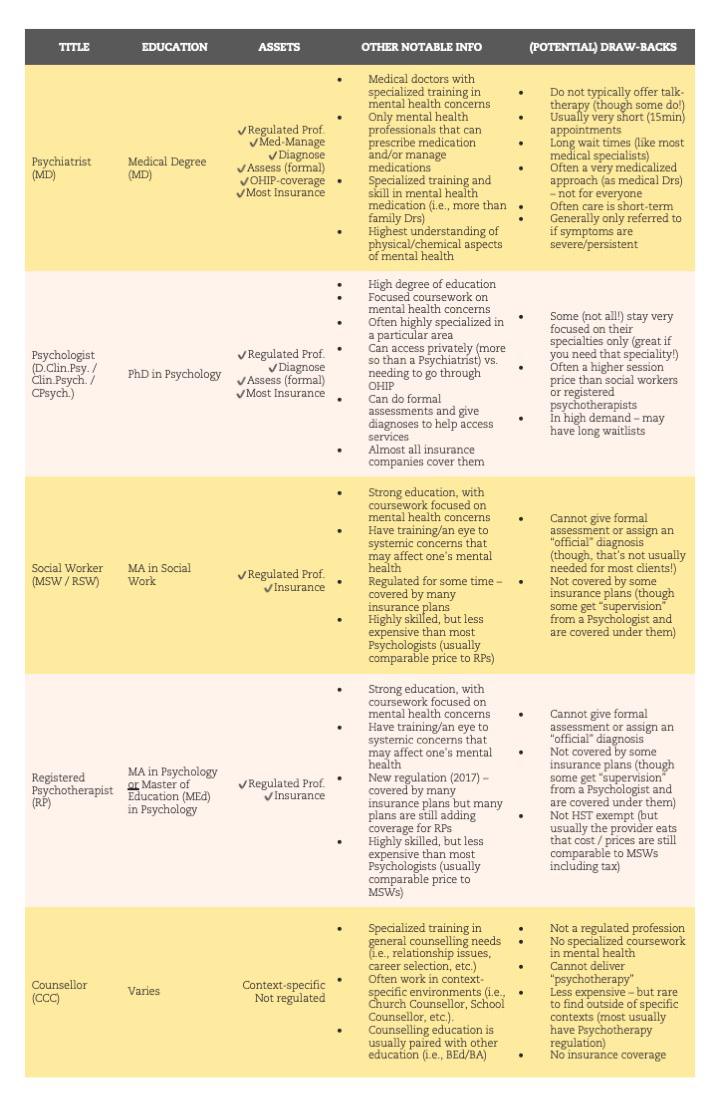
Tips & Tools
Managing your anxiety
Help!! Where Do I Start?!!

Written by: Joelle Anderson, RP, CCC, MA
Want to know what breaks my heart? Someone finally recognizes that they need the help of a professional in order to feel better (which, by the way, takes a huge amount of courage, humility, self-reflection, and motivation) – and then what happens? Too often, they hop online and… BAM! They crash head-first into a wall of jargon. Psychiatrist. Psychologist. Psychotherapist. Social Worker. PhD. MD. MA. MSW. RP. CCC. What does any of this mean? Who can help me? And, which one will my extended health plan pay for?
If this has been your experience – you are not alone!
The mental health system is complex. It’s structure stems from a number of regulatory organizations, processes, political bodies, and laws. And all of this is very important! These laws, institutions, and processes are intended to protect clients. They ensure professionals uphold a high quality of care and regulatory bodies provide oversight and accountability so that the practice of psychotherapy is done ethically, and avoid any preventable harm to clients – people who are often at their most vulnerable when engaging in therapy.
.jpeg)
Still, the complexity that stems from all of this regulatory (and the language that extends from that) does also confuse people looking for help. Really, the average client doesn’t care about the specifics.
Most clients have one simple thing in mind when looking for therapy – can you help me, or not?
So here is the long and short of it – most clients would notice little or no difference between a skillful psychologist, social worker, or psychotherapist. In fact, all of these professions are regulated, are often covered by insurance companies (and more and more insurers are covering more and more mental health services), and all of these professionals are required to do annual professional development training to keep building on their therapeutic skills. And these professionals all often attend the same professional development trainings – so (especially if they have been practicing for some time), they likely have very similar day-to-day skills! That said, psychologists do have more education and more specialized services they can offer – so some clients would definitely benefit from that!
.jpg)
Ultimately, research shows that the most important variable in a client improving from psychotherapy is the “therapeutic relationship” (not the providers level of education or designation!). In other words, how comfortable you feel with the therapist, how much you trust and open up to them, and how much warmth/acceptance you feel from them are the keys to success. So, I’d say just pick someone you feel like you “click” with, try them out, and if you feel like their approach “fits” for you – then you’ve likely found someone good for you. It’s also OK to “shop around” a bit, and many professionals offer a free call or consultation to let you do that!
Otherwise, I’m hoping I can help break down some of the jargon so that - if you’re still confused or unsure - you have a bit of a guide.

I do hope that helps! If a little more support is needed, services like Psychology Today or Theravive are essentially “search engines” for local therapists, which can help you filter/explore options that fit your needs.
Best of luck in your searching!
Joelle Anderson
Registered Psychotherapist (RP), MA, CCC
[email protected] | 647-880-7118 | kernelofwisdom.com
- All
-
29 Nutrition
Nutrition
- 73 Mindfulness and Relaxation
- 27 Student Life
- 8 Exercise
- 51 Treatments & Therapies
- Anxiety Resources

Don't see what you're looking for? Send us an email!
©Copyright 2024 Cam’s Kids powered by Kids Help Phone
Not-for-Profit Organization. B/N: 921508-5
Thanks for visiting Cam's Kids. Please remember...
Cam's Kids is not a service provider.
If you are in crisis, please call 911 or go to your nearest emergency department. For free, confidential counselling, contact Good2Talk or Kids Help Phone.
Post-secondary students: find your local crisis resource here.

